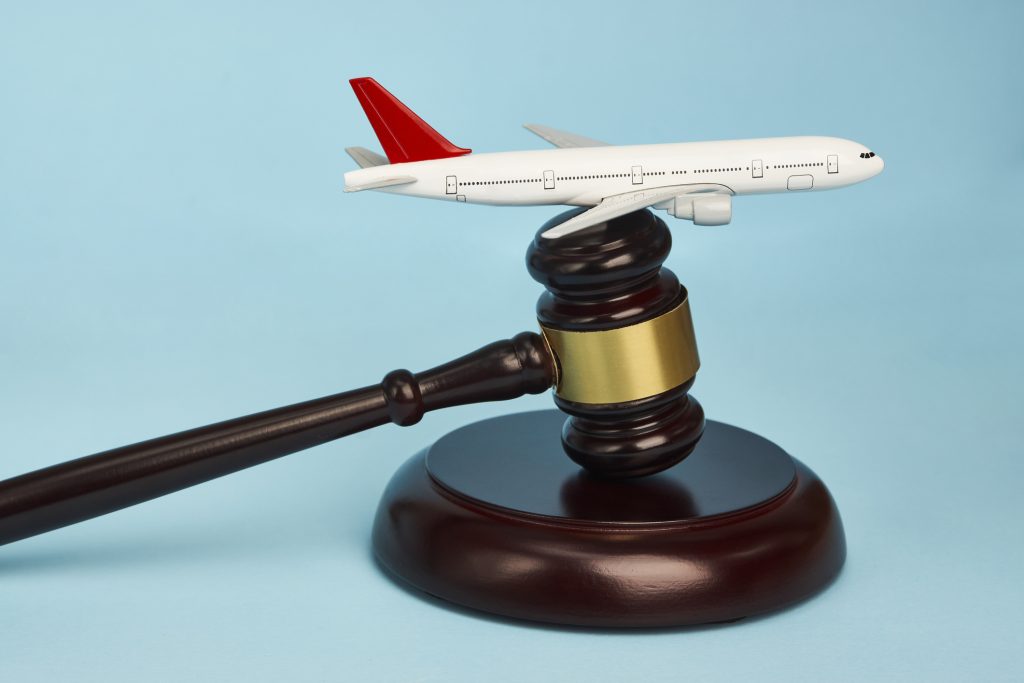It would be difficult to overstate the problems with air travel in 2022. Record numbers of flights were delayed and cancelled, consumers were left stranded, baggage was lost, and an aging and vulnerable infrastructure nearly collapsed under the stress. One of the most important pieces of legislation that Congress will consider this year is the Federal Aviation Administration Reauthorization Act. More than ever, American consumers depend upon airlines for their business and personal lives, but they are inconsistently protected when these airlines get it wrong. This recent spate of airline disasters has highlighted the “pressure points” in air travel, and the public has become much more aware of the lack of available protections. What are air travel consumers to do when an airline overbooks their flight or blindsides them with any number of “junk fees” the industry has become synonymous with? The 2023 Federal Aviation Administration (FAA) reauthorization presents a critical opportunity to expand consumer protection in these and other areas and ensures that the FAA meets its policy objectives during its next period of reauthorization.
As a federal agency, the FAA is accountable both to the American public and its aviation stakeholders, and its mission is “to provide the safest, most efficient aerospace system in the world.” Its structure and funding require routine reauthorization, though “reauthorization” is partially a misnomer. This process is actually a routine funding approval packaged in a legislative act with additional legislative changes. Though the airline industry was deregulated in 1978, the practice of FAA reauthorization originated with the Airport and Airway Revenue Act of 1970 which created the Airport and Airway Trust Fund (Trust Fund)—used to finance FAA investments. The authority to collect taxes and to spend from the Trust Fund must be routinely reauthorized to meet agency and consumer needs.
This unique reauthorization process presents both opportunities and challenges. It creates a regular opportunity to revisit funding decisions, projects, and research initiatives. It also presents a regularly re-occurring opportunity to hold the FAA accountable for mandates it has not fulfilled, to respond to recent problems in air travel, and to advocate for stronger consumer protections. However, any changes enacted in reauthorization acts are only set for a specific period.
The last FAA reauthorization occurred in 2018 and expires this year. The FAA Reauthorization Act of 2018 was the first multi-year reauthorization since 2012 and the first five-year reauthorization since 1982. Legislators may include proposals in reauthorization acts about a wide range of issues not limited to the topic of aviation regulation. For instance, the 2018 Act included legislative changes concerning sports medicine licensure and the Intelligence Reform and Terrorism Prevention Act of 2004. This is why it is critically important to pay attention to this legislative process.

Consumer Protections in the 2018 FAA Reauthorization Act:
- Directed the Department of Transportation (DOT) to examine and analyze the causes of flight delays and cancellations;
- Mandated regulations requiring carriers to promptly refund to passengers any ancillary fees paid for services that the passenger does not receive;
- Directed the DOT to appoint an Aviation Consumer Advocate;
- Promoted use of the consumer complaints hotline and evaluation of future mobile phone applications for consumer feedback; and
- Required the DOT to develop Airlines Passengers with Disabilities Bill of Rights.
What may happen in the 2023 Reauthorization? The failure to sign a reauthorization would be catastrophic for air travel. The FAA would be encumbered with the uncertainty of short-term extensions and cast doubt on its ability to obtain the funding it needs to invest in its critical priorities. Short-term extensions do not allow the opportunity to provide needed legislative changes in the form of an act passed by Congress.
The recent disasters in air travel have exposed the myriad areas where consumers need better protection. CFA has pushed for stronger protections for years, and 2023 is a critical time to continue this work. Congress should use the 2023 Reauthorization Act to respond to the air travel disasters and enormous criticism about the lack of available redress for harmed consumers. CFA and a group of national advocates for air travel safety and consumer protections have authored a letter to Congress asking to prioritize several key topics in the 2023 Reauthorization, including:
- Requiring compensation when consumers’ flights are delayed and canceled, and holding airlines accountable for publishing unrealistic flight schedules;
- End junk fee practices in air travel, including prohibiting fees for family seating and for other such services, and requiring all-in pricing;
- Ending federal preemption of airline regulation and allowing state attorneys general and individuals to hold airlines accountable;
- Encouraging stronger DOT enforcement of passenger protections; and
- Prioritizing consumer voices and experiences.
For a copy of the full letter and complete list of priorities, click here.

